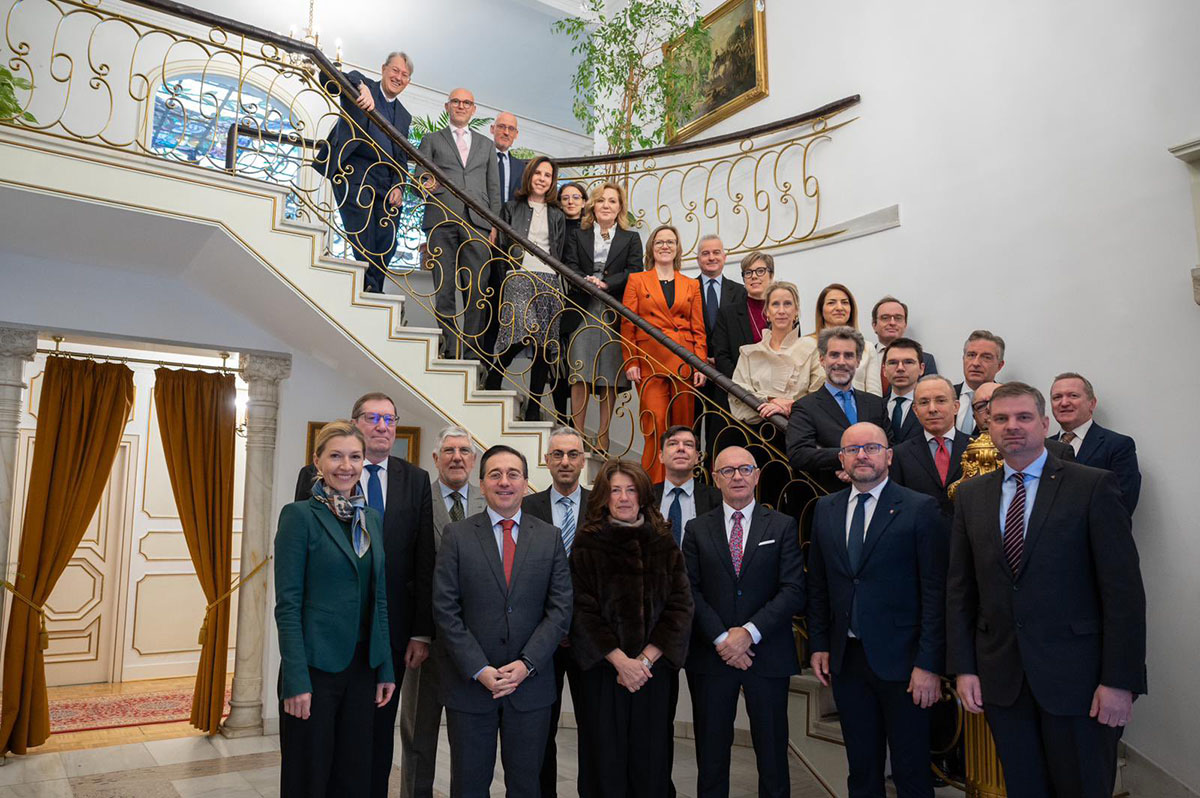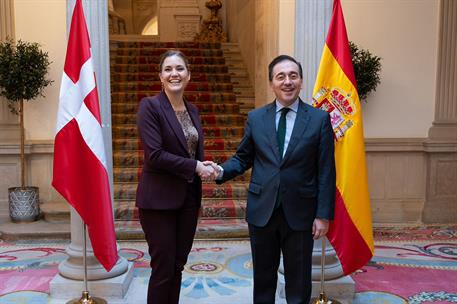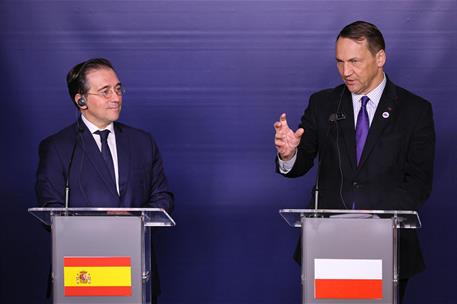Albares meets with EU ambassadors in Spain to analyse the challenges for the Polish Presidency
News - 2025.2.7
 Group photo during the meeting of the Minister for Foreign Affairs, European Union and Cooperation, José Manuel Albares, with the ambassadors of the European Union countries accredited in Spain
Group photo during the meeting of the Minister for Foreign Affairs, European Union and Cooperation, José Manuel Albares, with the ambassadors of the European Union countries accredited in Spain
The Minister for Foreign Affairs, European Union and Cooperation, José Manuel Albares, has held a meeting with the ambassadors for the European Union countries recognised in Spain to address the main challenges facing the rotating Presidency of the Council, which has been held by Poland since 1 January.
Albares called for European unity in the face of a changing world in which Russia's aggression against Ukraine has posed a huge challenge for European security. However, he also highlighted other threats, such as disinformation or instability in the Middle East, to which the European Union also needs to pay attention.
In this respect, the Spanish minister stressed that these are key issues that affect the European Union's foreign policy, which is a very important part of Spain's foreign policy. He also emphasised the need for the European Union to work on speaking with one voice and to act as a truly cohesive global player, reacting swiftly to the challenges ahead.
Albares therefore called for an approach that allows Member States to pay attention to all relevant issues on the international agenda. Along these lines, he argued that the Foreign Affairs Council's agendas should reflect this vision, maintaining a geographical balance that allows Member States to address crises or strategic debates that also warrant a European response.
Minister Albares also urged the European Union to cultivate its relationship with its Southern Neighbours - taking advantage of the fact that the post of EU Commissioner for the Mediterranean has been created - and to strengthen its ties with Latin America and the Caribbean in a year in which the EU-CELAC Summit will take place.
Albares admitted that Member States are facing a new institutional cycle in the EU in which they can push forward important dossiers and in which they can build the budget to be more competitive, make progress in the triple transition and ensure that the EU is open to the world.
Co-official languages
This meeting comes just a week after Minister Albares met with his Polish counterpart, Radoslaw Sikorski, to discuss Spain's priorities for the Polish presidential term, which ends on 30 June, before the baton is passed to Denmark. These include promoting the official status of the co-official Spanish languages within the European Union, which is a priority for the Government of Spain in its work with the EU.
Minister Albares took advantage of the meeting to ask the ambassadors to convey to the governments in the countries they represent the social, political and constitutional reality that Spanish co-official languages represent, and the firm commitment of the Government of Spain to ensuring the official status of these languages within the European Union.
The meeting was also an opportunity for Albares to explain to the ambassadors the major events that Spain has planned in the short term, including the Conference on Financing for Development, which will begin at the end of June and will take place in Seville.
Non official translation






